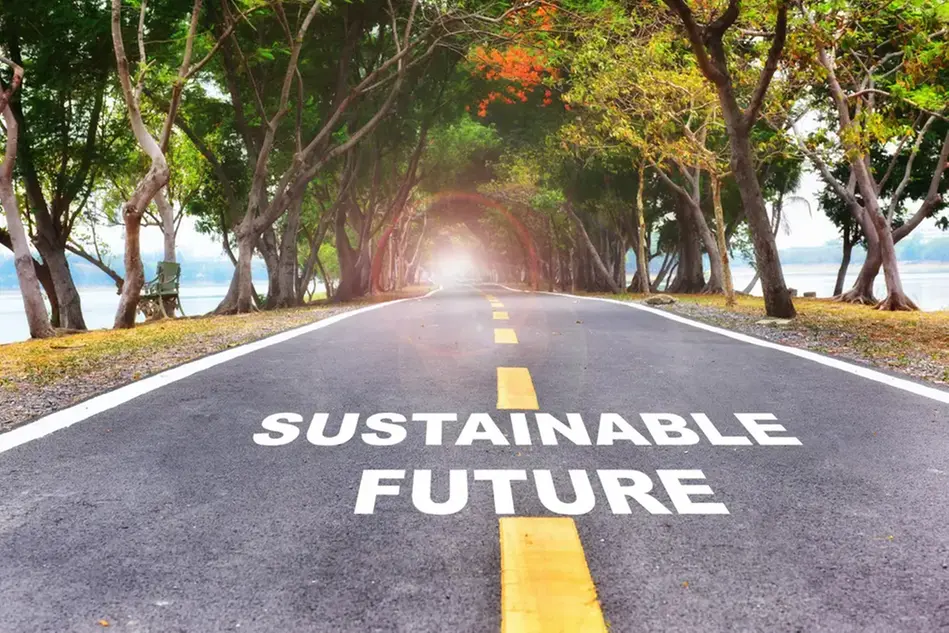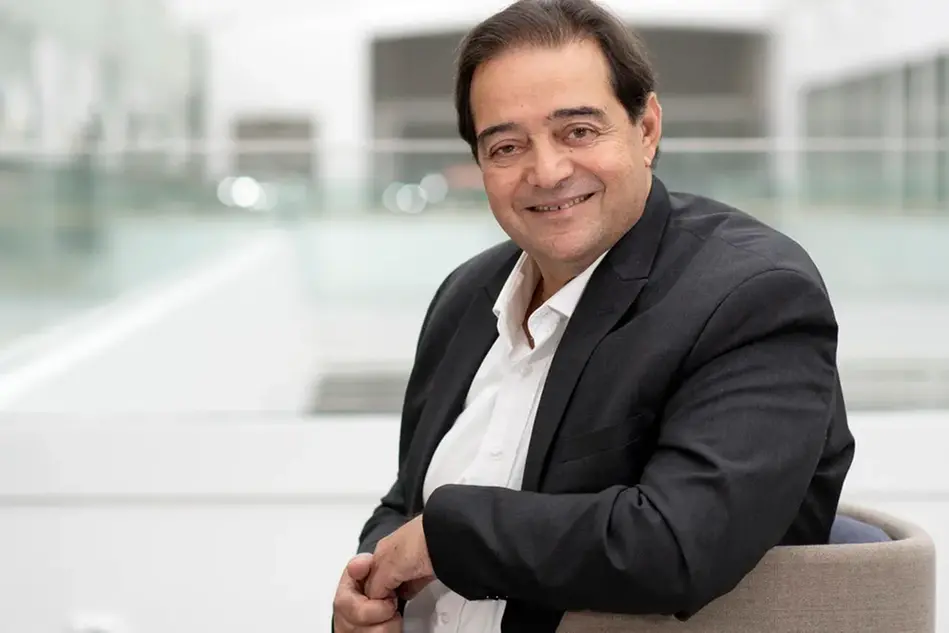Professor's portrait: About making money and saving the world at the same time
Fawzi Halila's research deals with sustainable innovations and business models for sustainability and is in the interface between innovation, product development, and sustainable development. Fawzi Halila switches smoothly between disciplines, and his major concern is that, through his research, he will be able to create a better, more sustainable world for our children, grandchildren, and great-grandchildren.
”To meet societal challenges, such as preventing the floods that we have seen recently, innovation is needed. We need to find new ways of living sustainably – both environmentally, socially and economically – and I believe in sustainable business models as part of the solution”, he says.
”I have always believed that it is possible to combine economic returns with social and environmental sustainability, and I stand by that to this day.”
Fawzi Halila, Professor in Industrial Organisation
It all began 30 years ago, when Fawzi Halila, a recently graduated civil engineer from KTH Royal Institute of Technology, moved back to his native country Tunisia to work as a project manager. His first assignment was on the construction of a large hotel complex, and he was soon struck by how little consideration was given to sustainability aspects. This insight aroused curiosity and a desire to change, and from thereon his research interest developed. That, coupled with a longing to return to Sweden, took him to Halmstad University where he eventually met Professor Sven Åke Hörte and the rest is, as they say, history. Since Halmstad University was not yet able to offer postgraduate education, Fawzi Halila was enrolled as a doctoral student at the Luleå University of Technology but was employed at Halmstad University with Sven Åke Hörte as his supervisor.
”Sven Åke meant a lot to me. With his help, I designed a PhD project linked to product development where I investigated why eco-innovations tend to be less successful than traditional innovations. I compared the market success of 280 different innovations and developed a model for how the success of innovations can be measured. I have always believed that it is possible to combine economic returns with social and environmental sustainability, and I stand by that to this day”, says Fawzi Halila.

Fawzi Halilas research leads the way towards a sustainable future.
Sustainability, the key to success – locally and globally
Since Fawzi Halila's PhD in 2008, a lot has changed. Today, sustainability is often a prerequisite for financial success, rather than, as it was seen at the time, a costly obstacle.
”It does not cost more to develop and market a sustainable product, and consumers today are demanding sustainability. There are plenty of examples of companies that have been successful precisely because they have been ahead of time with the integration of sustainability into their product development. The perception has been that a company is tasked to make money, but we now regard companies differently. They still need to make a profit, but they also need to take care of their employees and customers and protect the environment”, says Fawzi Halila and continues:
”There has been a generational shift. I can see it clearly in my students. Their way of thinking about consumption and sustainability is very different from my generation. They developed a sustainability mindset from their earliest infancy, quite simply. It gives me hope for the future!”
Fawzi Halila's research assumes a global perspective and is strongly linked to the 2030 Agenda and the Global Goals for Sustainable Development set by the UN. For multinational corporations, the global perspective is a matter of course, but for small and medium-sized enterprises, which are at the heart of Fawzi Halila's research, it is not always as simple.
”Even small and medium-sized companies have to think globally these days. They need to be able to collaborate with other companies, for example as suppliers or subcontractors, but it also matters from a sustainability perspective. We can learn from each other and benefit from global perspectives. Smaller companies are often interested in sustainability. There is a great deal of awareness today”, says Fawzi Halila.

Fawzi Halila received his PhD from Luleå University of Technology, but with a position at Halmstad University, on the thesis "The adoption and diffusion of environmental innovations". He was appointed Associate Professor of Innovation Management and Product Development in 2014. Fawzi Halila became a professor at Halmstad University in 2021.
Research that unites
Research on business models for sustainability connects several different disciplines, all of which are important pieces of the puzzle on the continued journey. Fawzi Halila has a background in engineering, is a professor of industrial organization, works side by side with doctoral students in innovation science, and collaborates closely with both environmental scientists and economists.
”During my career, I have accumulated solid experiences of multidisciplinary collaboration. That knowledge is of great value. The multidisciplinary aspect adds another dimension to my research. I work a lot with method development – how we can work together and benefit from each other's strengths to create innovations in different areas. It's an exciting challenge”, says Fawzi Halila.
An example of the unifying power that research can have is the international conference New Business Models that Halmstad University, with Fawzi Halila and his colleague Maya Hoveskog, Associate Professor in Innovation Management, at the helm, arranged in June this year. The conference was attended by 190 researchers and practitioners from more than 80 higher education institutions and organizations from all over the world.
”Despite the fact that the COVID-19 pandemic forced us to arrange the conference completely digitally, we managed to create an interesting smorgasbord with a Swedish touch. The participants were able to find out more about interesting research, listen to several keynote speakers and actively participate in workshops and panel debates.”
”During my career, I have accumulated solid experiences of multidisciplinary collaboration. That knowledge is of great value. The multidisciplinary aspect adds another dimension to my research.”
Fawzi Halila, Professor in Industrial Organisation
Professorship offers a new opportunity
The professorship will not mean any direct differences in Fawzi Halila's working day. He will continue to teach and conduct research. On the other hand, it changes things on a more basic, emotional level:
”Becoming a professor means a lot. A few years ago, I became seriously ill. I didn't think I'd make it, let alone be able to work again. I thought I was done for, but I didn’t feel as if I was finished. I wasn't at the finish line, I had more to give. I am extremely grateful to the amazing doctors who saved my life and who enabled me to come back to my family, to my friends, and my work. I've been given a second chance and it feels incredible. Now I am investing in the future and I have lots of exciting ideas, including how digitalization and business model innovation can be combined to achieve a circular economy. There's still a lot to do!”
Text: Christa Amnell
Photos: Dan Bergmark and iStock
About Fawzi Halila
Fawzi Halila was born in Tunisia in 1958. He graduated with a master's degree in engineering from KTH in Stockholm in 1988 and then worked as a construction project manager in Tunisia. In 2008, he received his PhD from Luleå University of Technology, but with a position at Halmstad University, on the thesis The adoption and diffusion of environmental innovations. He was appointed Associate Professor of Innovation Management and Product Development in 2014. Fawzi Halila became a professor at Halmstad University in 2021.

